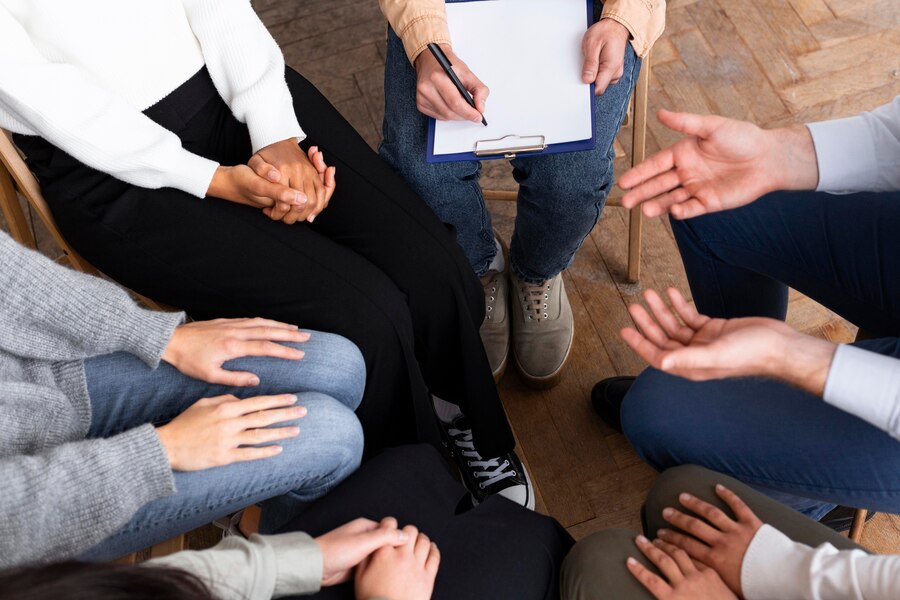The Beginning
People with Attention Deficit Anxiety Disorder (ADHD) often have trouble controlling their feelings and impulses. Mood swings, acting on impulses, and trouble sharing and understanding feelings are all signs of emotional dysregulation. But developing emotional intelligence—being able to notice, understand, and control your own emotions as well as others’—can have a big effect on a person with ADHD’s health and ability to do things. This piece talks about the connection between ADHD and psychological intelligence and gives ideas on how people with ADHD can improve their emotional awareness, ability to control their emotions, and social skills.
1. Understanding the Signs of ADHD and Emotional Dysregulation
Impulsivity, inattention, and hyperactivity are some of the ADHD signs that can make it hard for a person to control their emotions. Impulsive outbursts or overreacting to small irritations can happen when someone has trouble controlling their impulses. Not paying attention can cause them to miss social cues or get other people’s feelings wrong. Hyperactivity can also show up as nervousness or trouble sitting still, which makes it even harder to control your emotions. To come up with ways to boost emotional intelligence and make relationships better, it’s important to know how ADHD signs can lead to emotional problems.
2. Being able to recognize and name emotions
The first step for people with ADHD who want to improve their emotional intelligence is to learn to recognize and name their feelings. Many people with ADHD have trouble recognizing and expressing their feelings correctly, which can make it hard for them to talk about their emotional needs and understand how others feel. Mindfulness, guided self-reflection, and writing in a journal are all techniques that can help people with ADHD become more aware of their feelings and learn how to correctly name them. People with ADHD can better describe themselves and handle social situations better if they learn words for their feelings.
3. Figuring out how your thoughts, feelings, and actions are related
For people with ADHD to improve their emotional intelligence and learn how to control their reactions, they need to understand how their thoughts, feelings, and actions are connected. Cognitive-behavioral methods like cognitive restructuring, thought challenging, and reframing can help people with ADHD find and question their negative or skewed thoughts that make it hard for them to control their emotions. People with ADHD can make better decisions in their daily lives and come up with better ways to deal with problems if they understand the connection between their ideas, feelings, and actions.
4. Using techniques to control your emotions
Emotion regulation skills are very important for people with ADHD who want to control their strong feelings and stay away from acting without thinking. Deep breathing, progressive muscle relaxing, and mindfulness meditation are some of the techniques that can help people with ADHD calm their nervous system and control their emotions. Additionally, doing things like working out, being artistic, or spending time in nature can help you express and let go of your emotions. People with ADHD can become more resilient and flexible in how they handle their feelings by incorporating emotion regulation strategies into their daily lives.
5. Getting better at social skills and empathy
Improving social skills and empathy is important for people with ADHD who want to make friends and form lasting relationships. Empathy means noticing and understanding other people’s feelings, which can be hard for people with ADHD who have trouble understanding other people’s points of view and reading social cues. People with ADHD can learn empathy and improve their ability to connect to other people’s experiences by doing exercises like active listening, perspective-taking, and role-playing. People with ADHD can make stronger bonds and handle social situations better by improving their social skills and empathy.
6. Looking for help and therapy
People with ADHD can get the tools and help they need to improve their emotional intelligence and deal with emotional problems better by getting help and therapy. Cognitive-behavioral therapy (CBT), dialectical behavior therapy (DBT), and emotion-focused therapy (EFT) are all types of treatment that can help people with ADHD learn how to deal with problems, control their feelings, and make their relationships better. Support groups or internet communities for people with ADHD can also help them deal with emotional problems by giving them support, encouragement, and the chance to share their own experiences.
7. Learning to accept and care for yourself
People with ADHD need to learn to accept and care for themselves in order to build mental strength and self-esteem. Because they have trouble controlling their emotions and acting on impulses, many people with ADHD may feel shame, guilt, or self-criticism. Being self-compassionate means being kind, understanding, and accepting of yourself, knowing that having trouble controlling your emotions is a normal part of having ADHD. People with ADHD can become more resilient, boost their self-esteem, and have better relationships with others and themselves by learning to accept and care for themselves.
In conclusion
Emotional intelligence is a big part of how well and how well people with ADHD can function. It affects how they deal with their feelings, make friends, and build relationships that matter. People with ADHD can improve their emotional intelligence and do well in all areas of their lives by learning about ADHD symptoms and emotional dysregulation, recognizing and labeling emotions, understanding the link between thoughts, emotions, and behaviors, practicing strategies for emotion regulation, improving social skills and empathy, getting help and therapy, and learning to accept and care for themselves. People with ADHD can learn the skills and build the resilience they need to handle the complexities of feelings and relationships if they are patient, practice, and dedicated to self-awareness.




